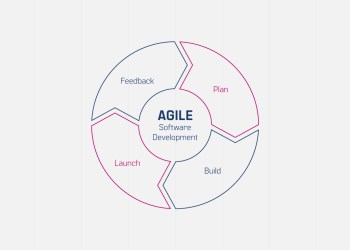Agile Methodology
Nail your Agile Scrum projects with the right tools for the job
At CloudNow, a key part of our process is the Agile Scrum methodology that we use while developing technology solutions....
Small Teams Achieve Big Goals – with the Right Approach!
Timely delivery of products and services is an important aspect of superior customer experience. Often, this is a big challenge...
Waterfall Vs Agile – Which one is right for you?
For most IT companies, the first thing to be discussed before starting a project is whether to follow the Waterfall...
Agile vs. DevOps: The Similarities and Differences
Agile and DevOps are two of the most widely used software methodologies today, with countless arguments that debate their respective...
Key Concepts of Agile Software Development
Agile is an encapsulation of efficient methodologies that lay out a responsive working style to build software applications. It is...
An Agile Product Backlog for a Strong Product
Have you ever wondered how to select and prioritize features when developing a new product? While following the SDLC method...






